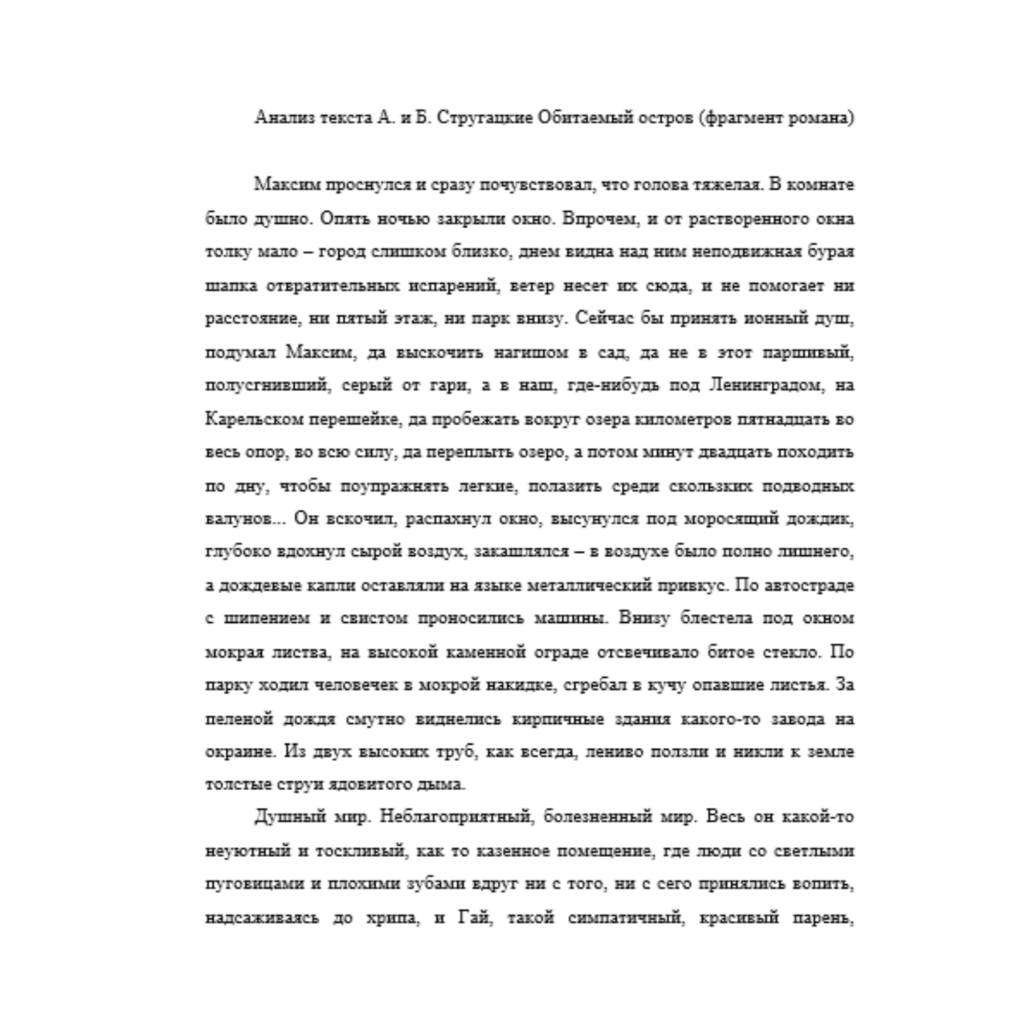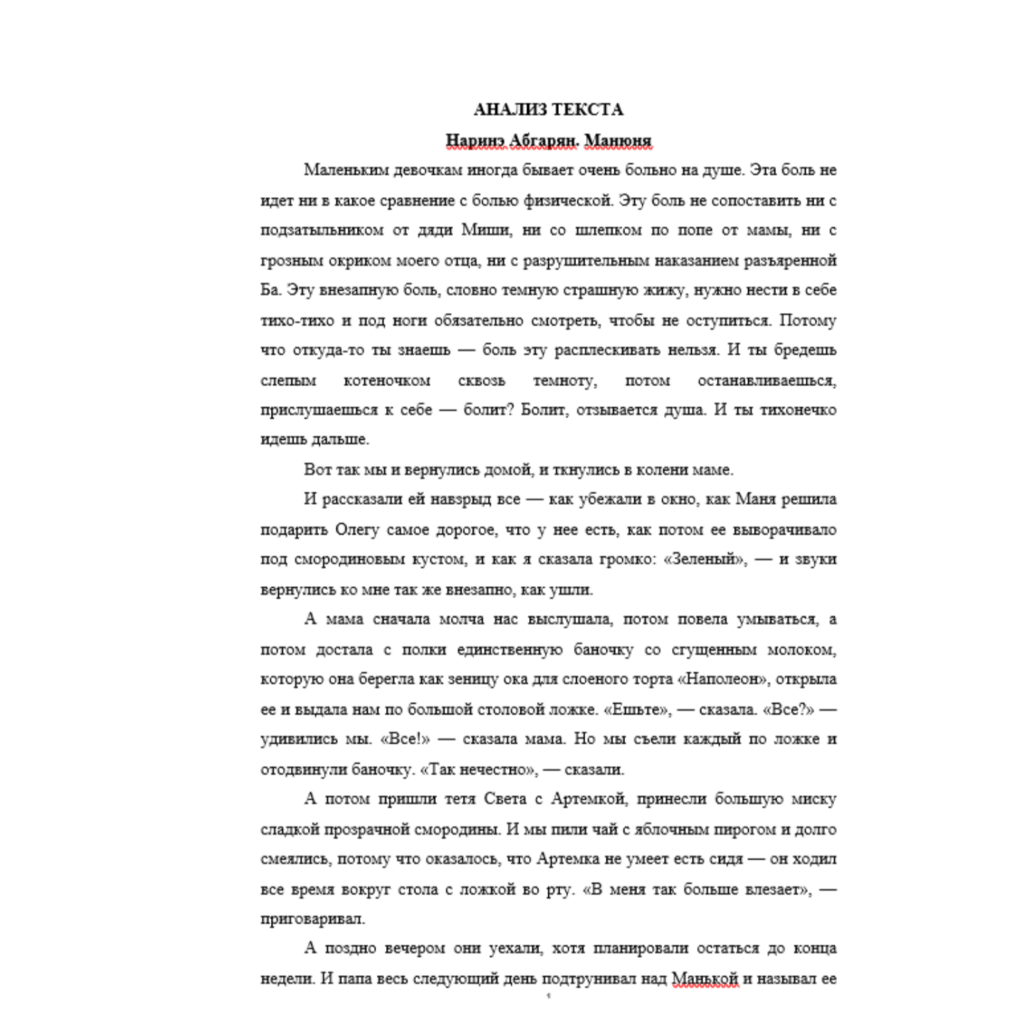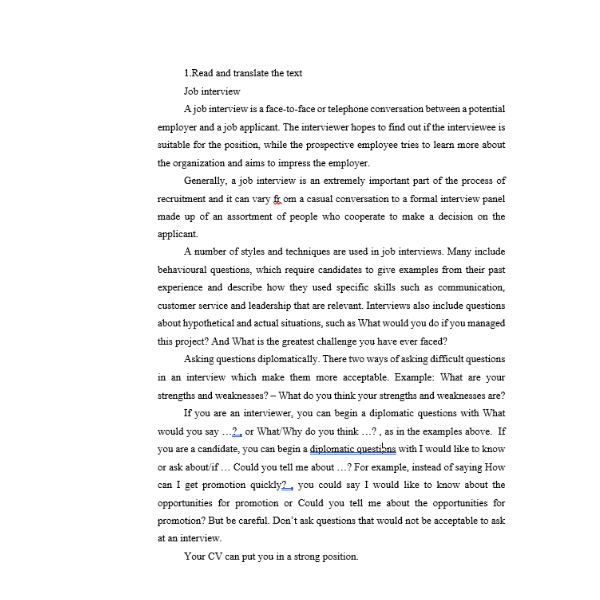module 5 perfomance review
200 pуб.
Купить
В наличии: 0
шт.
module 5 perfomance review
Conducting a performance review
1.Read and translate the text
A performance review is seen as an opportunity for an employee and, usually, their line manager, to get together and discuss an individual’s performance at work, their development and any support required. Carried out sensitively, a performance review is an important way of cultivating and maintaining the relationship between employees and their line managers. Whenever possible, feedback given in a performance review has to be objective and should encourage further positive action.
Many organizations use an appraisal form with space for the employee to rate their performance on aspects of their work, such as contribution to the team, effectiveness, role development, etc. This style of review is very effective in gathering data to help managers understand the capacity of human capital to add value.
Advice for managers in a performance review
1. Always remember why you are having the meeting: to review the employee’s performance and to give constructive feedback.
2. Don’t speak too much, let the employee respond and ask questions and speak about their achievements and why things happened. If they aren’t clear, ask them to explain.
3. Remember to set goals and objectives for the future.
4. If your assessment of the candidate is that they have performed badly, then look at how they can learn fr om their mistakes and perform well in the future.
Advice for employees in a performance review
1. Be serious. This is your chance to tell your boss how important you are to team.
2. If the feedback that your manager gives you isn’t clear, then say so. You can’t know if he/she has realistic expectations of you if you don’t understand.
3. Tell the truth. Don’t say that you were excellent at something if you weren’t; your manager isn’t stupid.
4. Don’t blame others. You should find ways to solve problems. If you surprise someone, then think about how you can help them. Take responsibility for your actions.
2.Vocabulary for performance reviews. Look at the words fr om the advice for managers and employees in the introduction. Match the words and phrases 1-8 with their definitions a-h.
1 constructive feedback A judgement or evaluation
2 set goals and objectives B be the person whose job it is to do something
3 achievements C useful advice that is sometimes critical
4 to review D things a person has done well
5 assessment E decide a future plan
6 realistic expectations F go over and look at something and analyse it
7 supervise G check another person’s work
8 take responsibility H things you hope for and which are possible in the future
3.Vocabulary to discuss pay and working conditions. Match the words and phrases below with these definitions.
Salary, career opportunities, glass ceiling, fringe benefits, work-life-balance, open-plan office, effort-reward balance, commission, appraisal system, tip, bonus, severance package, mentoring system, flextime.
1. A system of working where people work a set amount of hours in a period of time, but choose when they start and finish.
2. A fixed amount of money that an employee receives.
3. A working space where everybody has a desk, but nobody has their own individual office.
4. A barrier that stops certain groups of people getting promoted to the next level.
5. A number of chances to improve your position in the company.
6. An extra amount of money you may pay to a waiter or taxi driver to say thank you.
7. Payment to somebody who sells goods. The more they sell, the more of this they receive.
8. A system where a new employee learns from a more experienced employee at work.
9. This tries to make sure that people spend the right amount of time at work and don’t work too much.
10. Pay and benefits that somebody receives when they leave a jib.
11. Extra money somebody receives for a good performance.
12. A way of measuring how successful an employee has been.
13. Extras to the money that an employee receives, e.g. a company car, free health care.
14. Wh ere the company tries to make sure that employees receive the correct amount of money for the amount of work they do.
4.Do the words and phrases refer to pay and rewards or conditions? Complete the table.
Pay and rewards Working conditions
5.Look at the things that Jenny and David said during the performance review, and match them with the advice from the text.
Example: Sentence 1 goes with tip 2 for managers, as David asks Jenny to speak about her achievements.
1. David: Ok. So, looking at your achievement objectives from the last assessment, the first thing is evidence of achievements since the last time.
2. Jenny: At the last assessment we said I was going to undertake responsibility for that … and to get us through the standards tests … and I think I did that really well. There was a lot of work involved and I managed all of that.
3. David: But by the next review in January, and the one after that in June, it’ll be complete and finished with … So at the next review we could set that as a goal.
4. Jenny: Well, to be fair to Bob, I need to find the time now to sit down with him and look at the areas wh ere it isn’t, and what needs to be done to bring it up-to-date.
5. David: Well, I think at the end of this review we should bring Bob in and just have a look at that.
6.Answer one of the following questions.
1. What do you think about appraisal systems? What are the positives and negatives in your opinion?
2. What is most important for you, a high salary or career opportunities for the future?
Conducting a performance review
1.Read and translate the text
A performance review is seen as an opportunity for an employee and, usually, their line manager, to get together and discuss an individual’s performance at work, their development and any support required. Carried out sensitively, a performance review is an important way of cultivating and maintaining the relationship between employees and their line managers. Whenever possible, feedback given in a performance review has to be objective and should encourage further positive action.
Many organizations use an appraisal form with space for the employee to rate their performance on aspects of their work, such as contribution to the team, effectiveness, role development, etc. This style of review is very effective in gathering data to help managers understand the capacity of human capital to add value.
Advice for managers in a performance review
1. Always remember why you are having the meeting: to review the employee’s performance and to give constructive feedback.
2. Don’t speak too much, let the employee respond and ask questions and speak about their achievements and why things happened. If they aren’t clear, ask them to explain.
3. Remember to set goals and objectives for the future.
4. If your assessment of the candidate is that they have performed badly, then look at how they can learn fr om their mistakes and perform well in the future.
Advice for employees in a performance review
1. Be serious. This is your chance to tell your boss how important you are to team.
2. If the feedback that your manager gives you isn’t clear, then say so. You can’t know if he/she has realistic expectations of you if you don’t understand.
3. Tell the truth. Don’t say that you were excellent at something if you weren’t; your manager isn’t stupid.
4. Don’t blame others. You should find ways to solve problems. If you surprise someone, then think about how you can help them. Take responsibility for your actions.
2.Vocabulary for performance reviews. Look at the words fr om the advice for managers and employees in the introduction. Match the words and phrases 1-8 with their definitions a-h.
1 constructive feedback A judgement or evaluation
2 set goals and objectives B be the person whose job it is to do something
3 achievements C useful advice that is sometimes critical
4 to review D things a person has done well
5 assessment E decide a future plan
6 realistic expectations F go over and look at something and analyse it
7 supervise G check another person’s work
8 take responsibility H things you hope for and which are possible in the future
3.Vocabulary to discuss pay and working conditions. Match the words and phrases below with these definitions.
Salary, career opportunities, glass ceiling, fringe benefits, work-life-balance, open-plan office, effort-reward balance, commission, appraisal system, tip, bonus, severance package, mentoring system, flextime.
1. A system of working where people work a set amount of hours in a period of time, but choose when they start and finish.
2. A fixed amount of money that an employee receives.
3. A working space where everybody has a desk, but nobody has their own individual office.
4. A barrier that stops certain groups of people getting promoted to the next level.
5. A number of chances to improve your position in the company.
6. An extra amount of money you may pay to a waiter or taxi driver to say thank you.
7. Payment to somebody who sells goods. The more they sell, the more of this they receive.
8. A system where a new employee learns from a more experienced employee at work.
9. This tries to make sure that people spend the right amount of time at work and don’t work too much.
10. Pay and benefits that somebody receives when they leave a jib.
11. Extra money somebody receives for a good performance.
12. A way of measuring how successful an employee has been.
13. Extras to the money that an employee receives, e.g. a company car, free health care.
14. Wh ere the company tries to make sure that employees receive the correct amount of money for the amount of work they do.
4.Do the words and phrases refer to pay and rewards or conditions? Complete the table.
Pay and rewards Working conditions
5.Look at the things that Jenny and David said during the performance review, and match them with the advice from the text.
Example: Sentence 1 goes with tip 2 for managers, as David asks Jenny to speak about her achievements.
1. David: Ok. So, looking at your achievement objectives from the last assessment, the first thing is evidence of achievements since the last time.
2. Jenny: At the last assessment we said I was going to undertake responsibility for that … and to get us through the standards tests … and I think I did that really well. There was a lot of work involved and I managed all of that.
3. David: But by the next review in January, and the one after that in June, it’ll be complete and finished with … So at the next review we could set that as a goal.
4. Jenny: Well, to be fair to Bob, I need to find the time now to sit down with him and look at the areas wh ere it isn’t, and what needs to be done to bring it up-to-date.
5. David: Well, I think at the end of this review we should bring Bob in and just have a look at that.
6.Answer one of the following questions.
1. What do you think about appraisal systems? What are the positives and negatives in your opinion?
2. What is most important for you, a high salary or career opportunities for the future?




